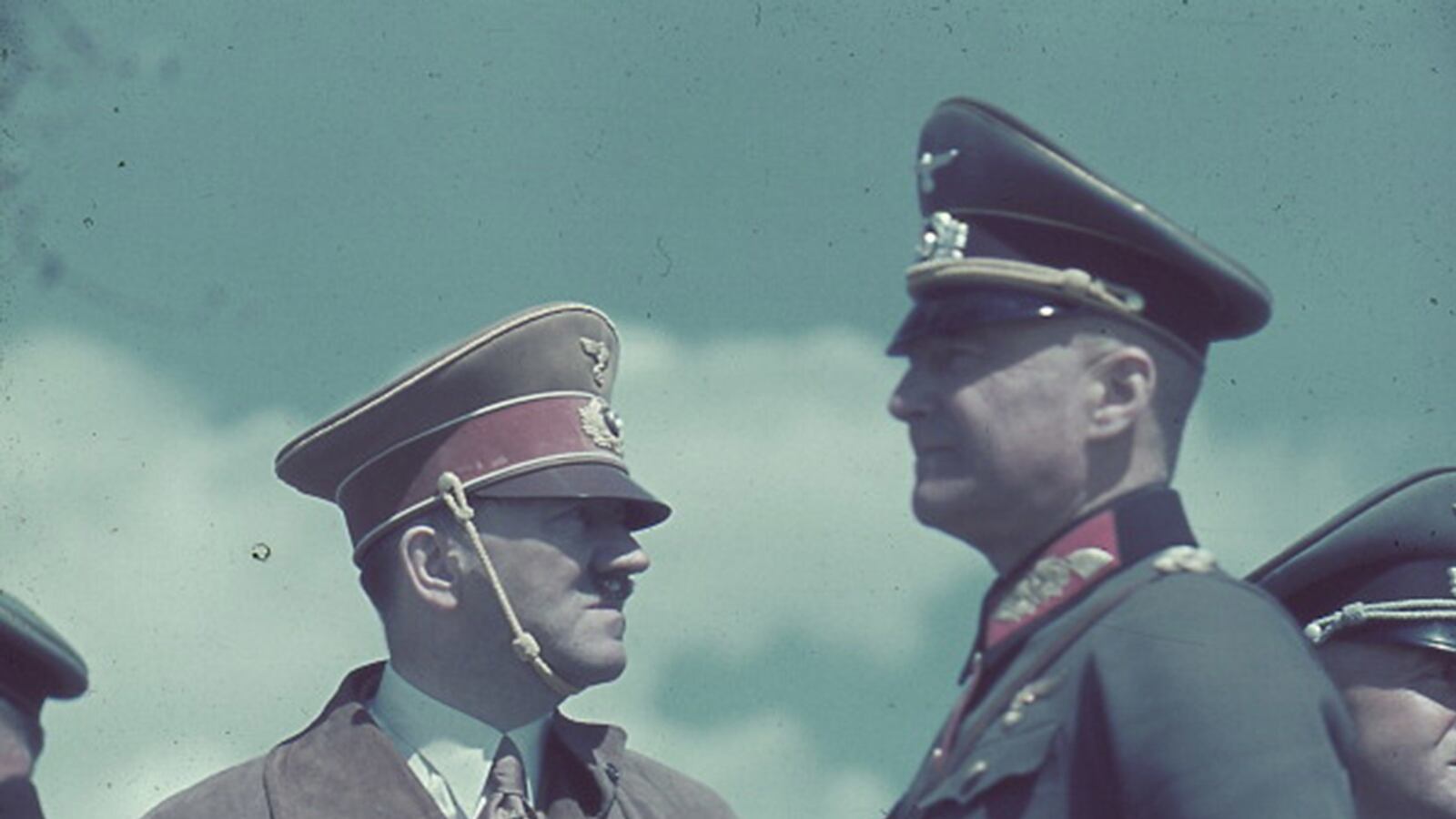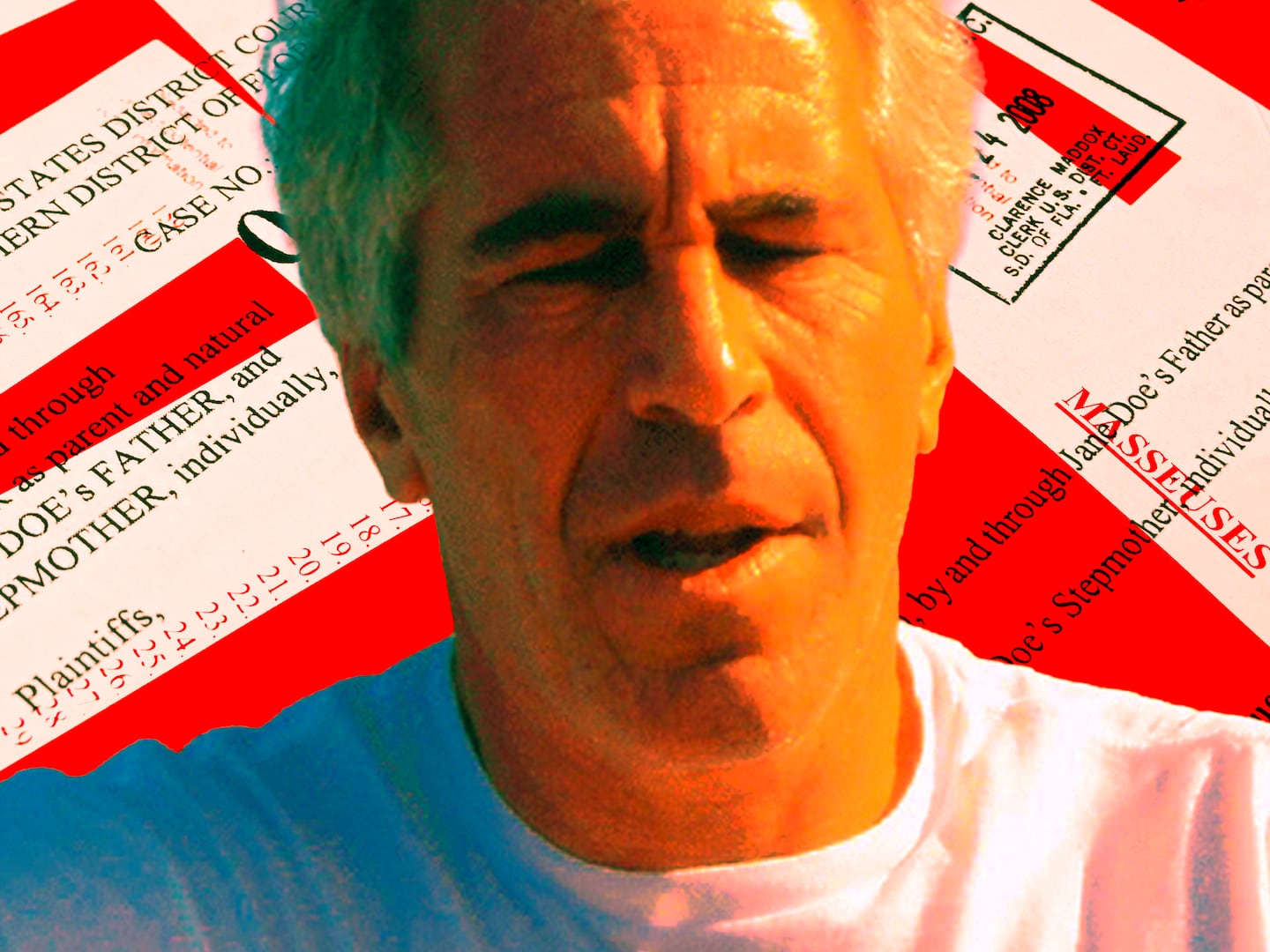It’s been nearly 20 years since Ron Rosenbaum’s Explaining Hitler made a splash with its examination of historians and conspiracy theories surrounding one of history’s most infamous villains.
This summer, Rosenbaum is out with an updated edition that includes a fresh take on the many controversies that have cropped up in the interim. From the debate over why Hitler lost the war to the Internet parodies of Downfall, Rosenbaum has wielded his discerning pen and dissected as much Hitler as one can stomach.
Now, in a Q&A with The Daily Beast, Rosenbaum opens up about many of the issues that compelled him to pick up his pen again.
What do you make of the comparisons made by people like Prince Charles or Hillary Clinton between somebody like Vladimir Putin and Hitler?
Yeah, I find Hitler comparisons one of the trickiest subjects. I deal with it in the afterword of the book, in terms of Godwin’s Law, which is the Internet meme, sort of, that said any Internet debate will eventually devolve into one side or the other saying, “Well, that’s what Hitler would say, or that’s what the Nazis would say.” It’s funny, I actually got contacted by Mike Godwin, who was the author of Godwin’s Law back in 1990, and it turns out he claims his career was built upon reading my article on blue boxes and he became the legal counsel for the Electronic Freedom Foundation.
But, anyways, I tend to believe people too readily reach for the Hitler comparison. On the other hand I believe Hitler shouldn’t be removed from discourse because that’s sort of like removing him from history. I don’t think I’ve evolved a law of my own, I think it’s just a case-by-case thing.
You mention Godwin’s law. In some ways you defend people referencing Hitler. Are there valid comparisons that can be made?
I’d have to judge them one-by-one. And the question is, was Hitler ultimate evil? Or was Stalin his equal? Mao’s body count was larger. How do we measure evil? By body count? Intent? The motive for which it was done?
I think that it’s best that it’s used as a last resort because in some way it inevitably diminishes the depths, or heights, however you want to say it, of what Hitler’s crimes were.
You’re also not a big fan of how Hollywood, including Schindler’s List, has handled the Holocaust.
Yea, I was kind of shocked by the rise, beginning with Bernini’s Life is Beautiful with what I call the feel-good Holocaust genre, in which Holocaust movies have to be in someway an affirmation of the human spirit. That there’s a kind of unwillingness to face the fact that the Holocaust was a pretty absolute negation of the human spirit. To try to find some happy ending, in a way, falsifies, flees from the reality.
Schindler’s List was an excellent movie, but I’ve heard some criticisms of it that I tend to find some merit in. Such as the fact that it ended with an uplifting reunion in Israel, and that it singled out for its hero a Christian who saved Jews, while most of Christian Europe helped send them on their way to the gas chambers.
And Malcolm Gladwell…
Yea, I was kind of surprised that his David and Goliath book, again, tried to find some feel-good moral in the Holocaust because one small French village had protected its Jews, therefore we should not find ourselves despairing entirely of human nature. While I don’t believe in despairing entirely of human nature, I don’t think the Holocaust is really a place where you can find that generalization.
You mentioned earlier about the issue of the word “evil.” How important are the semantics when it comes to talking about Hitler?
I think there’s a whole spectrum of the way people use “evil.” I, for instance, don’t have a religious belief in the devil or in some sort of spiritual darkness. I believe that there are evil acts, and I grapple with the idea of whether you can call people evil. In the book, I have an interesting turning-point conversation with historian H.R. Trevor-Roper. When I asked him a naïve question of whether Hitler knew he was doing wrong when he committed his crimes, Trevor-Roper said, absolutely not, he was convinced of his own rectitude. This goes back to the Socratic view that people who commit evil acts always feel they have good intentions, and therefore evil really doesn’t exist. I’ve come to think that evil adheres in ideas more than in people. People are seduced by evil ideas.
Although to some, like Nazi hunter Efraim Zuroff, it was the mid-level guys who committed evil acts and knew it. Which runs counter to the Hannah Arendt “banality of evil” theory.
I don’t disagree that there is such a thing as “banality of evil,” I just think that Hannah Arendt was mistaken in finding it in Adolf Eichmann, who boasted to one of his comrades that he would leap into the grave happily with five million Jews on his conscience. He was a feral, mass-murdering killer who even after the war was basically over wanted to make sure that the remaining Jews were murdered or shipped off to death. There was nothing banal about him.
On the other hand, there is a question of to what extent people who claim they follow orders are evil. I think that needs to be scrutinized carefully on an individual basis.
You also argue forcefully against the Hitler-as-Machiavelli argument—that he killed Jews for political reasons.
That was the big debate I came upon when I went over to England and talked with Trevor-Roper one day, and then Alan Bullock, who was one of the historians of Hitler to weigh in. After Trevor-Roper told me Hitler was a true believer, he thought he was doing good, I went up to Oxford to see Bullock. Bullock revealed he had changed his mind. He had initially believed that Hitler was just a cynic, a Machiavellian manipulator, an opportunist who didn’t even believe in his own anti-Semitism but used it to whip up crowds and get power. But Bullock told me that in the intervening years he had come to be swayed more by Trevor-Roper’s position that Hitler did consider himself on a divine mission. The way Bullock put that was memorable: “Yes, Hitler was an actor. But, he was actor who become possessed of his own act.” Bullock then laid out for me the ways in which, from the time Hitler became possessed by his own act with his early victories, that that was the reason that Hitler lost the war. He was so possessed by his own destiny he would never allow his armies even a tactical retreat, which turned out to be disastrous.
How does Hitler fit into the anti-Semitism of Germany at the time? It seems to me, if a lot of the focus is on Hitler, it exculpates a lot of the Germans.
I agree. I think that’s a really interesting argument that is still going on. Daniel Goldhagen in Hitler’s Willing Executioner’s blamed what he called 19th century scientific racism. There were a slew of idiot pseudo-scientists who came up with all these theories. The Aryan race was superior, the Jews were the enemy, and the Jews had to be destroyed. The one thing that ignores is 19th century Christian anti-Semitism. In my view, it removes from the German people their responsibility, or their agency. Goldhagen depicts it as being so deeply inculcated in the German psyche that it was almost as if they had no choice.
Another way Germans are exculpated is that Hitler and his inner circle were solely responsible for this evil, when he had the help of not just Germany, but the whole continent of Europe excepting maybe Portugal.
I don’t know if you’ve seen the story of the girl who posted a selfie from Auschwitz. What do you think when you see that?
I haven’t had much time to think about it, but it seems like in the scale of things, maybe this is not the right thing to do in that it potentially trivializes it. However, I don’t think it’s really possible to trivialize Auschwitz and what happened there. Somehow I think the outrage should be at what happened there, not at this somewhat misguided girl.
If you had to pick the worst theory you’ve come across that tries to explain Hitler, what would it be?
That’s a really tough question. I chose it for its metaphorical resonance, but the mosquito bite theory might be the worse. Let me separate it into two categories.
Perhaps the most far-fetched is the mosquito bite theory, which is that Hitler contracted encephalitis in World War I. There was actually a peer-reviewed paper in some journal of epidemiology in the ’30s, I’m not sure when it was published, but it talked about a syndrome in which encephalitis victims would suddenly develop some weird charismatic psychopathic personality. The idea of blaming Hitler on a mosquito bite doesn’t rank high in my estimation.
One of the most persistent, annoying, and irritating theories that seems to have some perverse attraction is that Hitler had a Jewish grandfather. Therefore, he hated the Jews because he either wanted to prove he had no Jewish blood or he thought he had Jewish blood and wanted to prove he didn’t, or some absurd psychoanalytic rationale. There’s no basis in fact for it, or for the various apocryphal stories attached to it. I think it comes out of something more lamentable, which is the search for a Jew to blame for Hitler. It began in Mein Kampf where Hitler himself described this scene in Vienna claiming he’d never seen a “real Jew” before he saw a black-caftaned figure and he was so horrified that he forever felt the alien-ness of the Jews and that started him on the path to becoming the anti-Semite he did. There are various other theories that find a Jew to blame. Even Simon Wiesenthal, the great Nazi hunter, was for a time enamored of the theory that Hitler must have gotten syphilis from a Jewish prostitute in Vienna when he was a youth there. Again, there is no evidence to that. Somehow, finding a Jew to blame makes up sort of deep symmetry that allows people to comfort themselves that they have an answer.
You write a lot about Hitler versus Stalin or Hitler versus Mao. What is constructive about the mass murder of humans in order to create a hierarchy of evil?
I don’t think that there should be a competition, but I do think that the question is interesting because it helps us identify what we talk about when we talk about evil. For instance, I found Timothy Snyder’s book Bloodlands to be a really impressive work. He extends the Holocaust back to 1931 where Stalin’s orders led to the starvation of millions of Ukrainians and cannibalism and many horrors, etc. Then the question becomes, are orders about the dispositioning of agricultural resources and produce which have an evil result as culpable or as reprehensible as what recently came to light in U.N. documents, in which Hitler is personally ordering the murder of 13,000 women and children in a Polish town. [Then there is] the hands-on killing that began in 1939 with the Einsatzgruppen, where they would just round up thousands of Jews and shoot them and bury them in shallow graves, or asphyxiate them in carbon-monoxide vans, and then ultimately industrialize the gassing and killing. This was very hands-on. You had to push people into the gas chambers, and they had to push people into the ditches.
It’s an interesting question, and an important one, I think. Does giving orders from a distant capital about agricultural supplies equal the Holocaust murders? I’m not sure I have the answer, but the underlying debate is important.
Should Jews fear a second Holocaust?
When I started writing about the idea of a second Holocaust, my concern was the state of Israel and Iranian potential weapons, etc. I think about what Benny Morris said, which is that a Holocaust the next time will be easier because a nuclear weapon can accomplish in six seconds what Hitler took six years to do. I don’t know if there will be a second Holocaust, but I think that that’s part of the mentality of people who live [in Israel], and the heritage that they’re aware of.
There was another group targeted by Hitler for extermination—the Roma. The last 60 years hasn’t exactly been great for the Roma. Is the silence about the plight of the Roma in Europe surprising?
I’ve read considerable amount about it, and it’s incredibly deplorable. It’s racist, and ancient, and not dissimilar from anti-Semitism in that way. It’s a cause of despair to think upon.
How do you think the psychoanalytical field has fared in trying to explain Hitler?
I was very skeptical of the extant psychoanalytic attempts to explain Hitler. There was Alice Miller, who on the basis of slender, or non-existent validated evidence, claimed that Hitler’s father beat him because the father suspected his father might have been Jewish and therefore Hitler was tainted—a whole mishegoss about that. People, alas, continue to cite it as if it had some validity in either fact or theory. So for Alice Miller it’s the bad father, and then Eric Fromm makes up his category of the malignant mother. And really, when you read it, it’s such a bunch of nonsense that psychoanalysts get away with. Fromm’s description of the malignant mother based on really nothing. Yet all these psychoanalysts, it’s like the Holy Grail. The psychoanalyst who can explain Hitler will trump all others.






